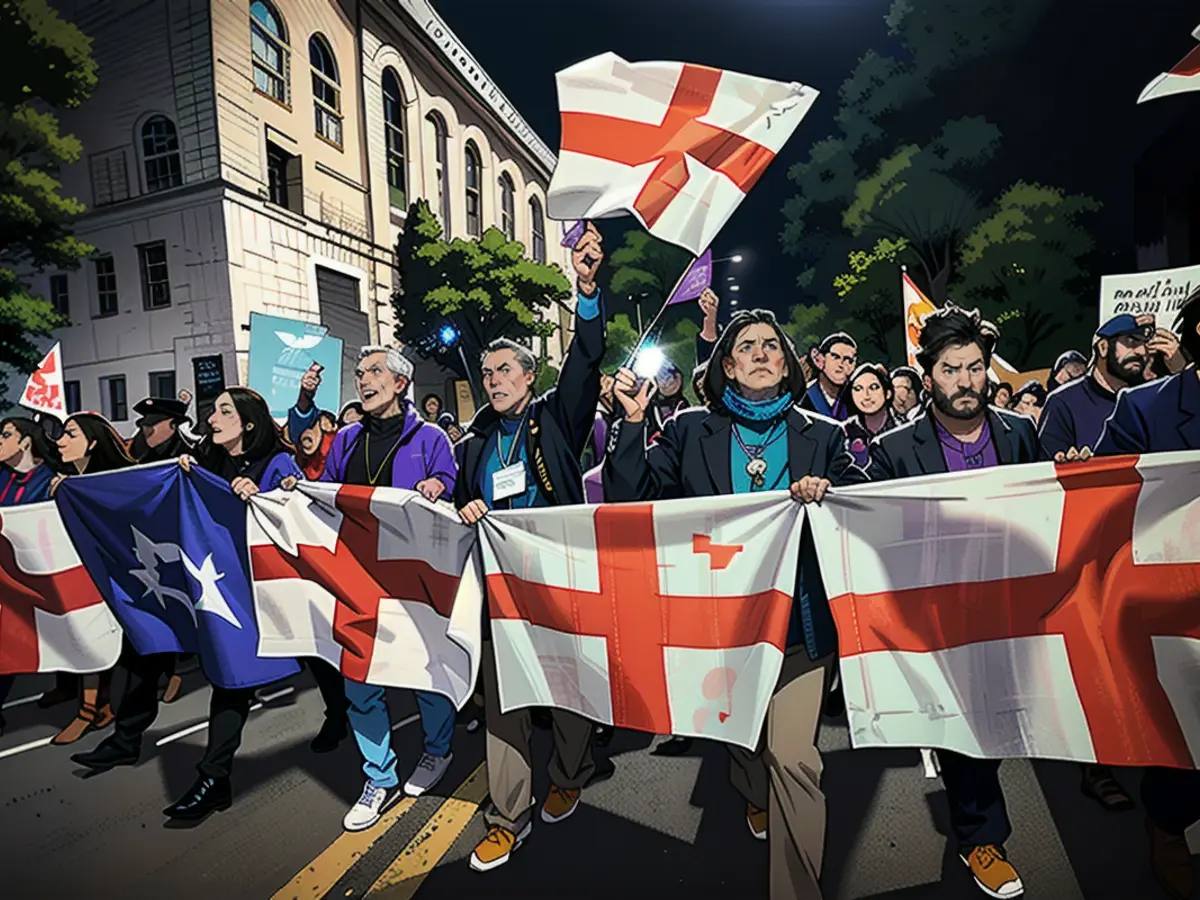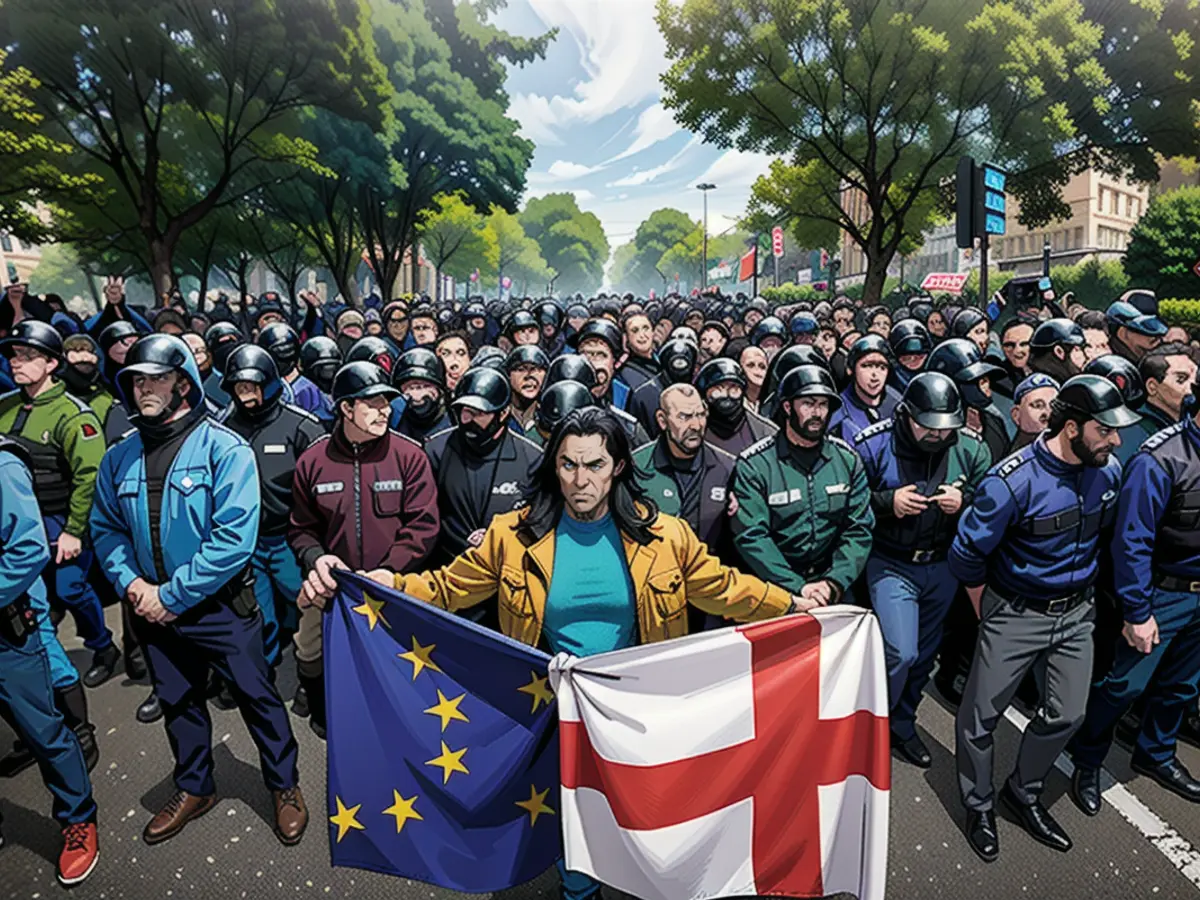Viewpoint: Immutable as diamonds, these Generation Z protesters demand a European destiny
Many people have been marching throughout Georgia over the past few weeks to demonstrate against the government's approval of a Kremlin-inspired "foreign agents" legislation. This legislation is a precursor to authoritarianism.
The bill stipulates that NGOs and media organizations that receive more than 20% of their funds from overseas sources must register as "foreign agents." The law is similar to one passed by Russia back in 2012 in reaction to the protests that occurred when Vladimir Putin was president. Putin used this law to weaken civil society, independent media, and political opposition. The same thing happened in Belarus and, recently, in Kyrgyzstan.
It seems like this is part of a deliberate plan to harm Georgia's connections with its Western allies, divide the population, and enable the ruling party to stay in control.
Hans Gutbrod, a public policy professor at Ilia State University in Tbilisi, told me that this "catch anybody we want" law will enable the government to "watch anyone they believe is working with foreign influence" and "request the most confidential information from any citizen or entity, including email access."
On Tuesday, the bill was approved by the lawmakers. A few days later, the president, Salome Zourabichvili, vetoed the bill, calling it unconstitutional, "Russian in nature and spirit," and an obstacle to becoming an EU member. Her decision will only postpone the issue for a while since the parliament has enough votes to override her veto.
Georgians are not accepting this passively. Thousands of protesters, including many from Generation Z who saw their future connected with Europe while being born in an independent Georgia, have held massive rallies.

In fact, many university students from at least 40 schools joined the protest.
In response, law enforcement officers used tear gas, rubber bullets, stun grenades, water cannons, and their fists in an attempt to disperse the pro-democracy demonstrations. These efforts have failed as the protests grow in size and frequency.
Spreading misinformation
Another law catering to the interests of Bidzina Ivanishvili, founder and honorary chairperson of the ruling Georgian Dream party, was speedily passed by the party last month. This law eases the process of bringing money from offshore locations to Georgia. As with the foreign agents law, its supporters argue it's to increase transparency, which is a preposterous idea.
Ivanishvili and his associates frequently disseminate false information to preserve their brand of populism. The Georgian Dream party's claim is that NGOs and protesters are secretly-funded "provocateurs of the Global War Party" – planning to upset Georgia's ruling system and create a second front in Ukraine's war with Russia, turning Georgia into "cannon fodder."

The head of the Georgian Dream party in parliament, Mamuka Mdinaradze, recently stated that Western NGOs are part of a "Soviet-style campaign" that involves "spreading discrediting information about the Georgian judiciary," propagating "so-called liberal ideology," and "promoting LGBT propaganda," as well as undermining "public trust in the Georgian Orthodox Church." All of this is quite a lot to take in.
The Speaker of Parliament, Shalva Papuashvili, also announced earlier this month that the government was creating a "database" to keep track of anyone involved in violence, blackmail, threats, or other unlawful acts, as well as anyone who publicly supports these actions. This parallels the idea of a blacklist for the opposition.
The foreign agents law symbolizes a larger problem - cash. Ivanishvili's political endeavors and naming close friends and past employees to high-ranking posts appear to prioritize his loyalty over that of Georgian citizens. If the US and EU genuinely wish to back the Georgian populace, their strategies should take into account the Georgian Dream's evolution.
The Georgian administration is moving away from the West. The Georgian people, however, remain steadfast.
The horrors of authoritarian oppression and regular violence have hardened Georgia's young protesters, turning them into a formidable force. They're organized, determined, and hopeful. They identify as Europeans. And they're fearless.

Another group of Georgians has discovered their own power. Georgia's democratic future now depends on these stalwart individuals.
Read also:
- This will change in December
- Dikes withstand water masses so far - Scholz holds out the prospect of help
- Fireworks and parties ring in 2024 - turn of the year overshadowed by conflicts
- Attacks on ships in the Red Sea: shipping companies avoid important trade route
- Despite the president's veto, the parliament has strong enough opinions to override it, indicating a division among the ruling authorities and the protesters.
- Many protesters, influenced by their opinions of a European destiny, believe that this foreign agents legislation will weaken Georgia's ties with its Western allies and threaten their future connections.
Source: edition.cnn.com







